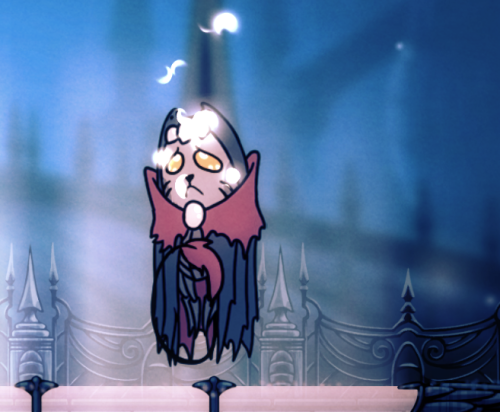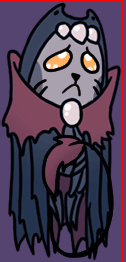Science Fiction Weapon/Airship List
Science Fiction Weapon/Airship List
Gun Type:
Accuracy:
Range:
Damage:
Fire Rate:
Reload Time:
Mobility:
Cooling Power:
Description:
-----------------------------------------------------------------------
Interstellar Travel:
Weapons Systems:
Length Of Travel:
Gas/Energy Refuling:
Ship Gravity:
Habitation :
Landing:
Artifical Intelligence:
Phsical Descrption:
Length and Size:
More Posts from Knkbr1020 and Others
a list of 100+ buildings to put in your fantasy town
academy
adventurer's guild
alchemist
apiary
apothecary
aquarium
armory
art gallery
bakery
bank
barber
barracks
bathhouse
blacksmith
boathouse
book store
bookbinder
botanical garden
brothel
butcher
carpenter
cartographer
casino
castle
cobbler
coffee shop
council chamber
court house
crypt for the noble family
dentist
distillery
docks
dovecot
dyer
embassy
farmer's market
fighting pit
fishmonger
fortune teller
gallows
gatehouse
general store
graveyard
greenhouses
guard post
guildhall
gymnasium
haberdashery
haunted house
hedge maze
herbalist
hospice
hospital
house for sale
inn
jail
jeweller
kindergarten
leatherworker
library
locksmith
mail courier
manor house
market
mayor's house
monastery
morgue
museum
music shop
observatory
orchard
orphanage
outhouse
paper maker
pawnshop
pet shop
potion shop
potter
printmaker
quest board
residence
restricted zone
sawmill
school
scribe
sewer entrance
sheriff's office
shrine
silversmith
spa
speakeasy
spice merchant
sports stadium
stables
street market
tailor
tannery
tavern
tax collector
tea house
temple
textile shop
theatre
thieves guild
thrift store
tinker's workshop
town crier post
town square
townhall
toy store
trinket shop
warehouse
watchtower
water mill
weaver
well
windmill
wishing well
wizard tower
some weird writing advice that i would give to new writers (that i still use).
(part two of ?/part one)
✩ being stuck
being stuck is another thing a lot of writers struggle with, and this problem has a tendency to pop out in the most random times. you could've written the most amazing scene you had ever written in your life but when you reread it to edit it, you realize that it's actually as flat as a burnt pancake. it's frustrating as hell, makes me want to punch the words then myself if i'm being honest, but then i started using this techniques and it actually helped me a lot:
forget you're writing a scene. imagine it in your head as a movie scene playing. jot down everything you can imagine; what expression does the character have? where are they standing? what sounds can be heard in the background? you're not writing a scene, you're watching a movie.
summarize. what happens next in the story? summarize it in brackets, like this:
' (they both started running and skidded under the closing door.) ’
‘ ( she pulled out a gun and pointed at them. blood was flowing from the side of her forehead.) ’
‘ (they fought. BAM BAM BAM BAM. then silence. someone screamed. the walls started closing.) ’
summarize p.2. this is the same thing as the above one, but in reverse. instead of summarising the situations in brackets, we're gonna be writing just dialogues. sometimes it happens that when you're writing, you can actually hear the characters speak in your mind but don't know how to describe the scene.
change perspectives. if your story is written in first person pov, change it to third person pov. if it's in third, change it to first. or, to spice things up, write from a side character's pov and how they see the mc (main character) deal with the situation.
being random. now, you'll see a lot of people saying to ‘kill one of your characters if you‘re stuck’ and it might work, but not every time and definitely not when it's not needed. throwing a plot twist in your book is one thing and breaking your reader's trust is another and there's a thin line between it. however, you can be random in some other aspects, like switching the narrator. or changing the weather (this one is so helpful!!). or adding in a small but fun and interesting side quest.
try something different. this could be something just for timepass but it would be fun. write a character sketch. build up backstories for your side characters. take buzzfed quizzes as your characters (this is honestly so fun). make a satire AITAH post inspired by something unhinged your character did, let the other characters decide if they're TAH or NTA.
read some fanfics. trust me on this, reading some poorly written fanfics is the best way to get out of a writing slump! the worse it is, the better chance you have of writing.
finally finished this, holy shit. (Turn the sound on)
sometimes you need dialogue tags and don't want to use the same four




you HIT soul master? you pop his body like the balloon?? oh! oh! jail for knight! jail for knight for One Thousand Years!!!!

#RPG
The players start with a checklist of every number from 1 to 20. Whenever they would make a roll, they instead cross off a number and use that number. Their list does not refresh until they've used every number.
You are an immortal. You angered a bard so badly that he epicly roasted you back. After a thousand years, even after the bard's name was forgotten, his words are still among the people. Everyone knows you as the moron.
A desperate kingdom attempts to summon a hero, but their limited magical resources only allow them to summon a “miner” a man named Steve carrying only a wooden pickaxe. But when he starts punching trees , everyone wonder what miner he is.
Writing Tips
Punctuating Dialogue
✧
➸ “This is a sentence.”
➸ “This is a sentence with a dialogue tag at the end,” she said.
➸ “This,” he said, “is a sentence split by a dialogue tag.”
➸ “This is a sentence,” she said. “This is a new sentence. New sentences are capitalized.”
➸ “This is a sentence followed by an action.” He stood. “They are separate sentences because he did not speak by standing.”
➸ She said, “Use a comma to introduce dialogue. The quote is capitalized when the dialogue tag is at the beginning.”
➸ “Use a comma when a dialogue tag follows a quote,” he said.
“Unless there is a question mark?” she asked.
“Or an exclamation point!” he answered. “The dialogue tag still remains uncapitalized because it’s not truly the end of the sentence.”
➸ “Periods and commas should be inside closing quotations.”
➸ “Hey!” she shouted, “Sometimes exclamation points are inside quotations.”
However, if it’s not dialogue exclamation points can also be “outside”!
➸ “Does this apply to question marks too?” he asked.
If it’s not dialogue, can question marks be “outside”? (Yes, they can.)
➸ “This applies to dashes too. Inside quotations dashes typically express—“
“Interruption” — but there are situations dashes may be outside.
➸ “You’ll notice that exclamation marks, question marks, and dashes do not have a comma after them. Ellipses don’t have a comma after them either…” she said.
➸ “My teacher said, ‘Use single quotation marks when quoting within dialogue.’”
➸ “Use paragraph breaks to indicate a new speaker,” he said.
“The readers will know it’s someone else speaking.”
➸ “If it’s the same speaker but different paragraph, keep the closing quotation off.
“This shows it’s the same character continuing to speak.”
-
 can-i-explode-now liked this · 5 months ago
can-i-explode-now liked this · 5 months ago -
 explosionsfx liked this · 5 months ago
explosionsfx liked this · 5 months ago -
 vengeance-paladin liked this · 5 months ago
vengeance-paladin liked this · 5 months ago -
 newdawnhorizon reblogged this · 5 months ago
newdawnhorizon reblogged this · 5 months ago -
 writing-blackhole reblogged this · 5 months ago
writing-blackhole reblogged this · 5 months ago -
 ts714 liked this · 5 months ago
ts714 liked this · 5 months ago -
 knkbr1020 reblogged this · 5 months ago
knkbr1020 reblogged this · 5 months ago -
 knkbr1020 liked this · 5 months ago
knkbr1020 liked this · 5 months ago -
 heckcareoxytwit liked this · 5 months ago
heckcareoxytwit liked this · 5 months ago -
 reverent-sacrifice reblogged this · 5 months ago
reverent-sacrifice reblogged this · 5 months ago -
 burning-and-remembering liked this · 5 months ago
burning-and-remembering liked this · 5 months ago -
 newdawnhorizon reblogged this · 5 months ago
newdawnhorizon reblogged this · 5 months ago -
 wynters-writings liked this · 5 months ago
wynters-writings liked this · 5 months ago -
 cherrybean-boy liked this · 5 months ago
cherrybean-boy liked this · 5 months ago -
 sunshineshadowcast liked this · 5 months ago
sunshineshadowcast liked this · 5 months ago -
 ch0c0late-duck liked this · 5 months ago
ch0c0late-duck liked this · 5 months ago -
 jollycapybara liked this · 5 months ago
jollycapybara liked this · 5 months ago -
 the-one-eyed-clampdown reblogged this · 5 months ago
the-one-eyed-clampdown reblogged this · 5 months ago -
 the-one-eyed-clampdown liked this · 5 months ago
the-one-eyed-clampdown liked this · 5 months ago -
 rkwriting2027 reblogged this · 5 months ago
rkwriting2027 reblogged this · 5 months ago
